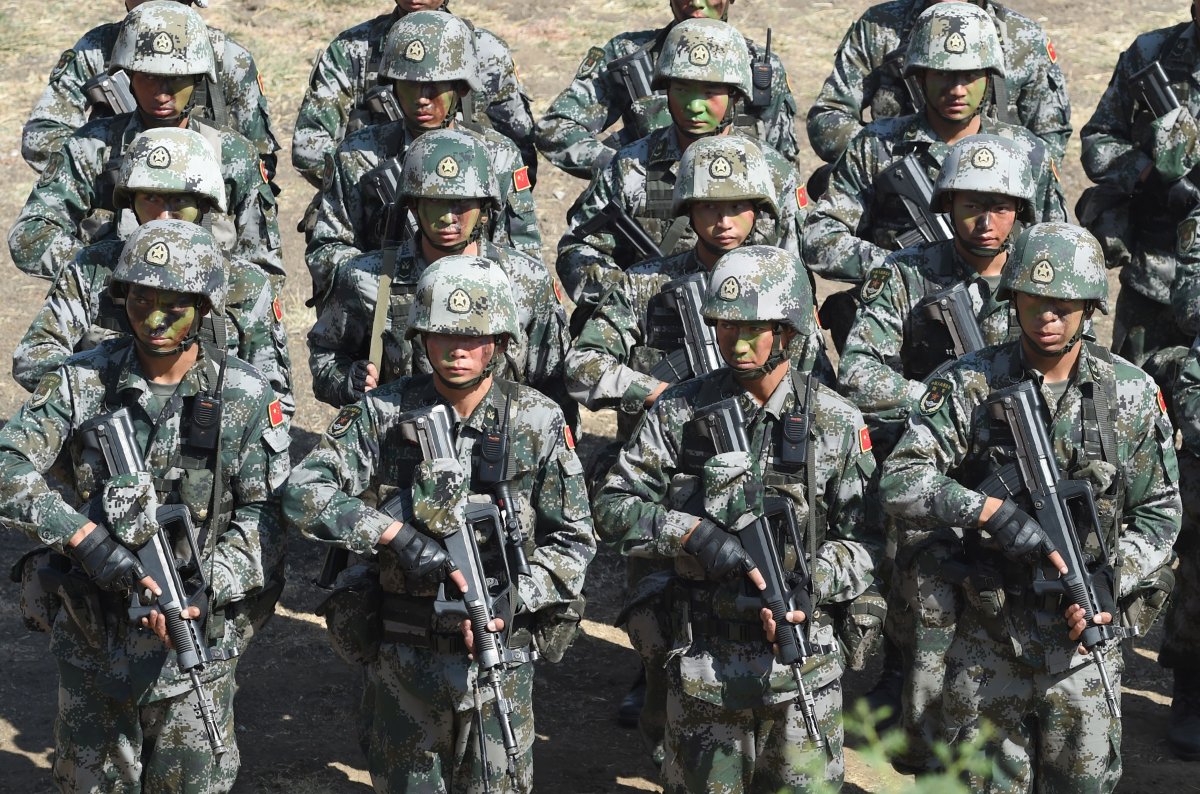A senior official in Beijing on Thursday doubled down on Chinese territorial claims to a state in northeastern India, before criticizing Washington for "provoking disputes" by backing New Delhi.
"Zangnan has been China's territory since ancient times. This is an undeniable fact," Col. Wu Qian, China's Defense Ministry spokesperson, said of the region the Indian government calls the state of Arunachal Pradesh.
China says the area is part of Zangnan, or South Tibet, citing historical rights. It has renamed the region on its official maps and issues separate visas to Indian citizens from the area in a bid to assert sovereignty.
Wu's remarks were a direct response to Indian Prime Minister Narendra Modi's visit to the strategic region in the Himalayas earlier this month, when he inaugurated the Sela Tunnel on March 9.
This tunnel is seen as a vital infrastructure development, boosting all-weather connectivity to the Tawang region in the west of Arunachal Pradesh, where Indian and Chinese troops clashed in December 2022. Construction began in October 2020.
The statement from China's defense spokesperson comes amid recent activities that have heightened tensions along the disputed 2,100-mile Line of Actual Control (LAC), which separates the two Asian powerhouses.
China and India have been locked in a four-year military stand-off, which began after their armies were involved in a deadly melee in June 2020 in the Galwan Valley of eastern Ladakh, on the western edge of the LAC bordering China's Xinjiang region.
The ongoing dispute between China and India over Arunachal Pradesh has historical roots, with the two countries having engaged in a brief, bloody conflict in the 1960s over the territory.
Newsweek contacted India's Ministry of External Affairs for comment.
Meanwhile, the United States has irked China by backing India against China's criticism of the Sela Tunnel.
"The United States recognizes Arunachal Pradesh as Indian territory, and we strongly oppose any unilateral attempts to advance territorial claims by incursions or encroachments, military or civilian, across the Line of Actual Control," Vedant Patel, a U.S. State Department spokesperson, said last week.
Wu, the Chinese official, said in response: "The United States has a poor historical record of provoking disputes with other countries and pursuing its own selfish interests, and the international community sees this clearly."
Earlier this month, the Chinese Foreign Ministry lashed out at the U.S. for wading into border tensions between India and China.
"China strongly deplores and firmly opposes this. The China-India boundary has never been delimited. Zangnan has always been China's territory, a basic fact that is undeniable," said ministry spokesperson Lin Jian.
"The China-India boundary question is a matter between the two countries and has nothing to do with the U.S. side," Lin said.
The State Department did not immediately return Newsweek's request for comment.

The public war of words continues against a backdrop of attempts to deescalate at the border. Chinese and Indian representatives held a 29th round of dialogue in Beijing on March 27 in an attempt to resolve the ongoing standoff.
"The two sides agreed to strictly abide by the agreements and guiding principles of the relevant common understandings reached between the two sides, avoid flare-ups in the situation on the ground, and continue to consolidate the previous disengagement outcomes, in a bid to safeguard peace and tranquility in the border area," the Chinese Foreign Ministry said in a statement on Thursday.
At the border, China and India's military leaders have also held 21 rounds of talks, but deployments continue on both sides.
Uncommon Knowledge
Newsweek is committed to challenging conventional wisdom and finding connections in the search for common ground.
Newsweek is committed to challenging conventional wisdom and finding connections in the search for common ground.
About the writer
Aadil Brar is a reporter for Newsweek based in Taipei, Taiwan. He covers international security, U.S.-China relations, and East Asian ... Read more
To read how Newsweek uses AI as a newsroom tool, Click here.








